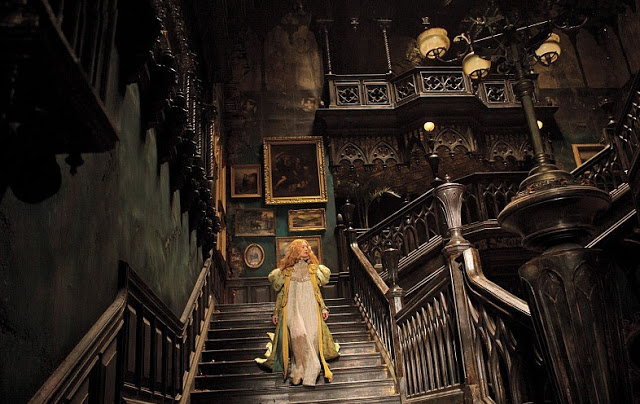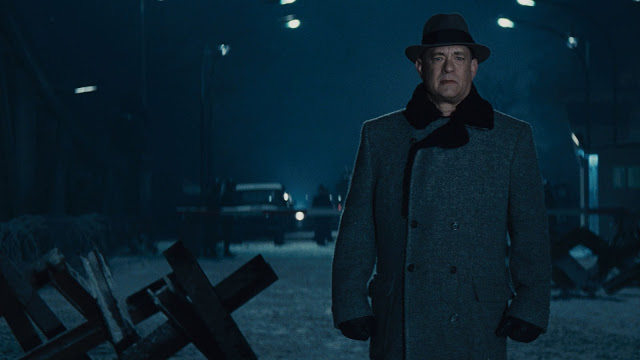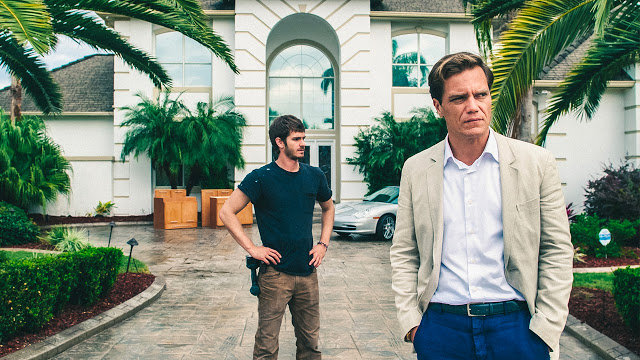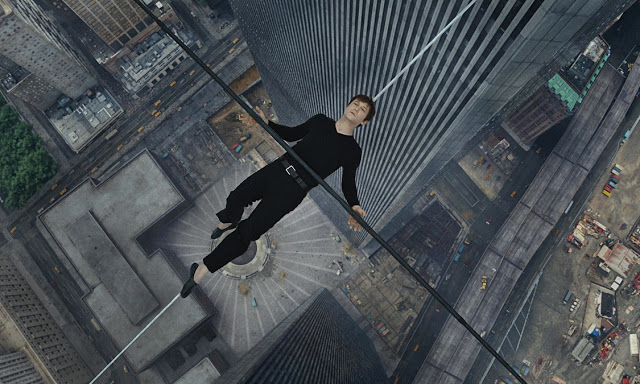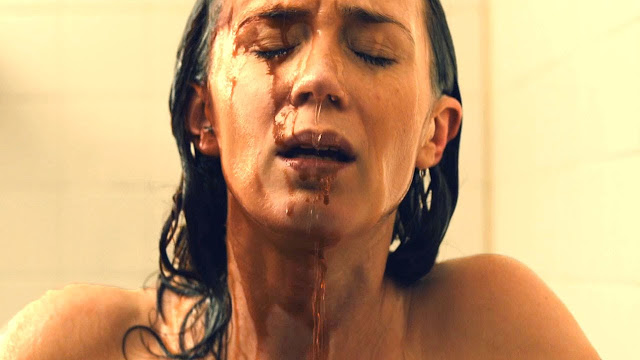Crimson Peak: A Haunted House, Bleeding and Beautiful
Guillermo del Toro’s Crimson Peak is a frivolous, ravishing movie that invites a referendum on the very pleasures of moviegoing. This frustrating and satisfying film, which del Toro directed from a script he wrote with Matthew Robbins, is destined to divide audiences, not because it will elicit disputes over its quality, but because appreciation of it hinges entirely on the vagaries of subjective taste. Narrative purists who prioritize plotting and screenwriting above all else will doubtless be vexed by the clumsiness of its dialogue and the banality of its story. Formalists, however, will take rapture in its splendorous visuals and in the lush refinement of del Toro’s craft. It is, in binary terms, either a terrible good movie or a magnificent bad movie.
Let’s begin with the bad. From a storytelling standpoint, Crimson Peak is disappointingly rote, if not entirely dull. Set aside its fantastical prologue—in which a child is visited by the ghost of her newly dead mother, a black phantasm with spindly fingers who whispers gravely, “Beware of Crimson Peak”—and you might mistake it for a lavish period costume drama (if admittedly the first costume drama ever to take place in Buffalo). The year is 1891, and the object of attraction is the amusingly named Edith Cushing (Mia Wasikowska, persuasive as ever), the peculiar daughter of a pompous aristocrat, Carter (Deadwood‘s Jim Beaver). Edith is a bit like Cinderella without the wicked stepsiblings; she is mocked by the gentry for her oddness, even though she does draw the admiration of a handsome doctor (Charlie Hunnam, who headlined del Toro’s Pacific Rim). A classic Jane Austen heroine, Edith is unlucky in love but spirited in life, and she brazenly channels her energy into the masculine pursuit of fiction writing. Read More

